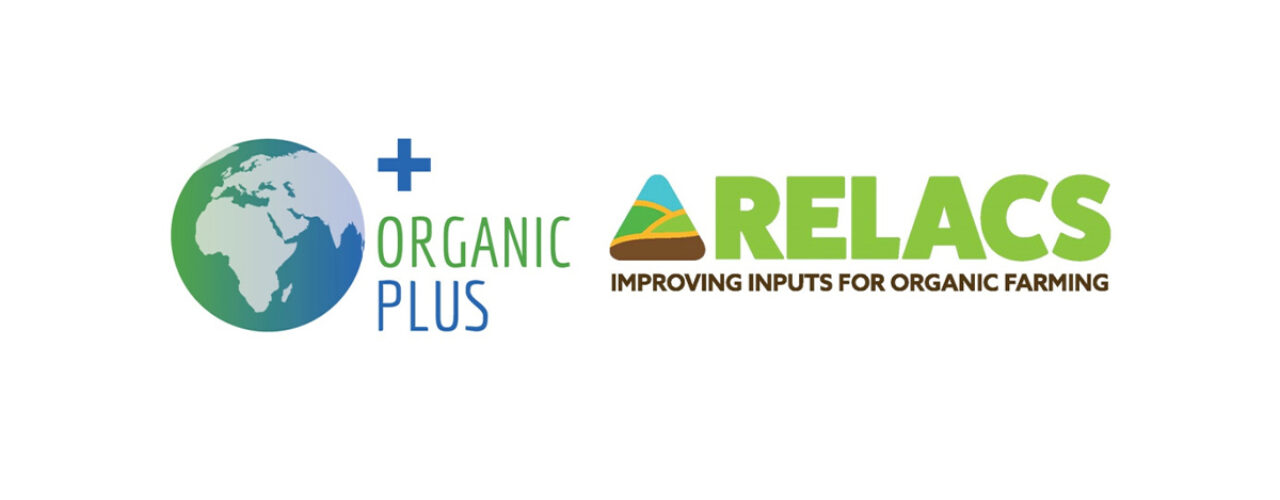
RELACS and Organic-PLUS collaborate to reduce contentious inputs
Researchers and stakeholders active in two European H2020 projects, RELACS and Organic-PLUS came together for a webinar on 8th April to share lessons learned from project activities since 2018. The main areas examined were: reducing the use of copper and mineral oils for plant protection, animal-derived fertilizers from conventional farming, peat in growing media, and fossil fuel-derived plastics. The webinar was primarily for people active in the projects, to facilitate open discussion about experiences and outcomes.
High expectations
Organic agriculture is receiving increased attention with high expectations of its ability to contribute to improve biodiversity and reduce the negative environmental impacts of farming across Europe. The two ongoing Horizon 2020 projects funded by the European Commission aim to strengthen the abilities of organic agriculture in achieving these ambitious goals, by phasing out the use of contentious inputs which are not completely in line with the organic principles of health, ecology, fairness and care.
Copper is used in most European countries as a plant protection product on a wide range of horticultural crops. While being a naturally occurring element,it accumulates in the soil and, in high concentrations, it is toxic to soil and aquatic organisms. Both projects are developing promising alternatives such as plant extracts and decision support systems (DSS) which can significantly reduce the need for applications. To replace mineral oils, a promising alternative is to confuse pest insects using sound.
Conventional animal manure and other animal-derived fertilizer products may be applied to organic soils, but this places organic agriculture in a difficult position being dependent on conventional inputs. The RELACS project has studied the input of fertilizers to various organic farming systems across Europe and found that over time, there is often a reduction in the contents of phosphorus and potassium in the soil. Organic-PLUS have trialled a range of fertiliser alternatives, from household-waste-based anaerobic digestates to seaweeds and various legume-based fertilisers. Recycled materials such as green waste compost may also provide a substantial source of nutrients, therefore RELACS has studied the safety aspect of recycled fertilisers, such as the occurrence of potentially toxic elements (e.g., copper, zinc, and cadmium). It was concluded that in general, the risks are no higher than with animal manure, but that achieving balanced fertilizer applications over a whole cropping system is challenging with recycled fertilisers and needs adapted planning tools. This should allow us to identify regional needs for additional nutrient sources, especially in view of growing areas under organic production. In addition to soil fertility, Organic-PLUS has also worked with wood fibers and composts as alternatives to peat in growing media and is developing and examining potato starch-based degradable plastic films for mulching as well as the potential of on-farm derived mulches.
More than 50 participants joined the event, which included a lot of interesting presentations and discussions. This exchange will continue as the two projects evolve.
